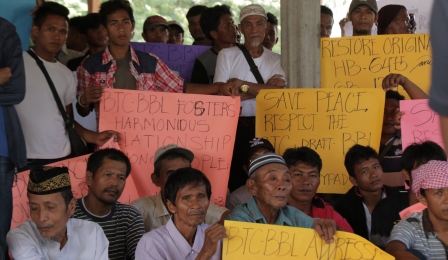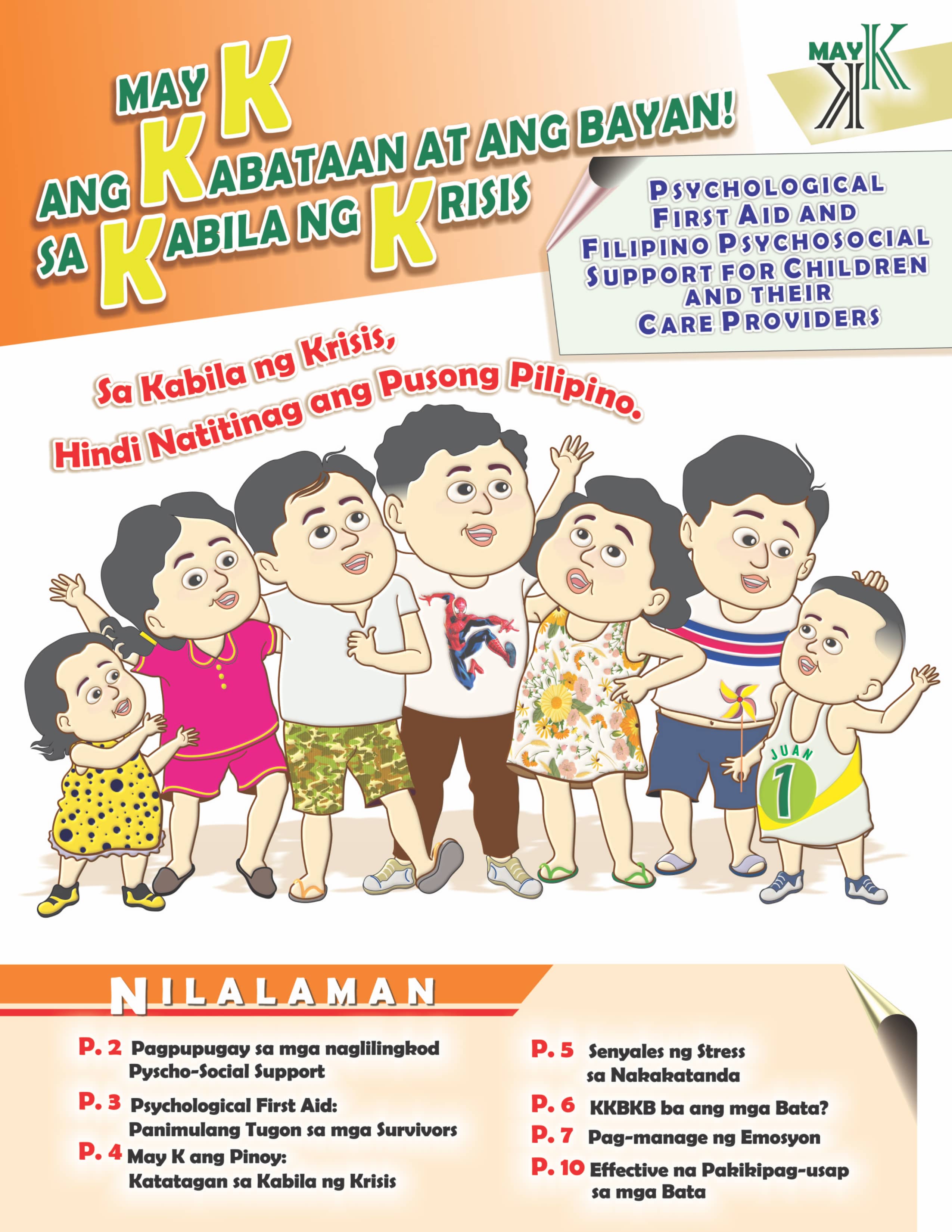We are the peoples in Mindanao who aspire for a peaceful and progressive homeland. We lived and struggled to chart a future where we can be free from fear and want. We have longed for a system of governance that nurtures our identity and corrects the injustice that have ridden our tortuous past.
A regime of durable peace has eluded us for so long. Violence, dispossession, and human rights violations have ripped apart our communities and brought suffering to us all. But we have kept our faith and worked hard to promote a socio-political and cultural arrangement that would bind our communities together in peace based on justice. Our aspiration is to weave a tapestry of humanity in our homeland that nurtures the Bangsamoro identity: a political and social set-up that promotes inter-faith solidarity and celebrates ethno-linguistic plurality with the Lumads and the Christian settlers and migrants and their descendants.
Many have sacrificed to arrive at a political formula that would transform the conflicts in our villages into a network of dialogical and supportive relationships. Thus, we deem the creation of a Bangsamoro juridical entity as envisaged by the Bangsamoro Transitional Commission (BTC) as propitious. The grant of meaningful autonomy for the Bangsamoro through the enactment of the Bangsamoro Basic Law (BBL), as proposed by the BTC, augurs well with our desire to exercise our right to self-determination under the Philippine Republic. It recognizes the diversity of the constituencies under the Bangsamoro and guarantees the fundamental rights of the various stakeholders as well.
The BBL version drafted by the BTC provides safeguards and balance between ensuring, on one hand, that social justice is afforded the Bangsamoro and, on the other hand, respecting the sovereign power of the state. This is indeed the right step towards addressing the roots of violent conflict in Mindanao. By recognizing the legitimate cause for self-determination through meaningful autonomy, the Bangsamoro becomes more of an opportunity and a peace partner towards national development. This can eventually lead to the process of healing towards national unity and reconciliation, a state of affairs we all have wanted to see for so long.
However, we are seriously concerned over the BBL bills passed on the Third Reading by Congress as can be gleaned from the following observations:
- The powers of the proposed Bangsamoro Government as envisioned in the proposed BBL drafted by the BTC have been substantially reduced.
- Legislators have transferred a substantial number of the exclusive powers provided by the Comprehensive Agreement on the Bangsamoro (CAB) and found in the BTC-drafted bill to the reserved powers of the National Government or to the concurrent powers that will be shared by the Central Government and the Bangsamoro Government. This is not to mention those that were either deleted or downgraded.
- In the House of Representatives, the reserved powers of the National Government have increased from 9 to 20. The list of concurrent powers has increased from 14 to 21, thereby reducing the exclusive powers for the Bangsamoro Government to nearly half, if we bring together those amendments from both chambers of Congress.
- Subjecting the exclusive powers of the Bangsamoro Government to not only the Constitution, but also to national laws further diminishes the Bangsamoro Government’s power as a self-governing entity and effectively throws away the very essence of meaningful autonomy, as policies decided by the National Government are made effective and controlling in the exercise of exclusive powers in the Bangsamoro territory.
The BBL crafted by the BTC has been a product of years of negotiations and multi-stakeholder consultations. Dialogues have been held among young people, women, Lumads, communities of Christian settlers and migrants, and internally displaced peoples as well. A consensus have been reached that enhancing the power of the autonomous Bangsamoro government is fundamental in meeting the noble objectives of improving the lives of the people, end violence and foster national unity and reconciliation.
The structural infirmities of the Autonomous Region in Muslim Mindanao (ARMM) need to be addressed, and those powers already granted to it should be transferred to the new political entity. This would allow the Bangsamoro Government to build on what has already been granted to the ARMM and strengthen structures and systems that have proven to be challenging in the last 28 years of the current autonomy arrangement.
There is no doubt that a weak autonomous government will lead to failure. It would not be able to address the challenges that the ARMM Government and the people in its territorial jurisdiction have been facing -- poor service delivery, unclear delineation of powers between the regional government and the local governments, patronage, communal land conflict, the threat of violent extremism, among others. We cannot replace a weak autonomous government with another weak autonomous government. We want one that has learned from the lessons of the ARMM “experiment” and will lead to a successful autonomy arrangement that is more responsive to the challenges of governance and development, including those abovementioned.
It is for these reasons that we, the tri-people of Mindanao, represented by the Muslims, Christians and the Indigenous People, support the call of the civil society in appealing to the honorable members of the bicameral conference committee to restore those deleted or transferred powers of the proposed Bangsamoro autonomous government.
We also ask that there be a real grant of powers and that this be expressed by allowing the Bangsamoro to exercise its powers with minimal intervention from National Government. We also appeal to His Excellency, President Rodrigo Roa Duterte to exert extra efforts within his constitutional authority to help pass an autonomy law that is compliant with the peace agreements, and is vested with substantial powers as a way of addressing historical injustices that he had promised to address.
Specifically, we call on the legislative and executive departments of the National Government to work out the passage of a BBL that:
- Restores the list of powers, as agreed upon in the CAB;
- Allow meaningful autonomy and real self-governance, with minimal intervention and imposition from National Government;
- Does not take away powers already granted to the ARMM, but builds on these powers;
- Returns effective control over and benefits of the natural resources in the Bangsamoro territory to the Bangsamoro, as pronounced by the President himself on June 16, 2018 in his Eid’l Fit’r speech; and
- Provides for a high level of fiscal autonomy with the block grant being released regularly and automatically to the Bangsamoro Government.
Other problematic provisions should also be addressed, in keeping with the campaign promise of the President to address historical injustices to the Moro people.
Enacting a BBL that addresses the root causes of the conflict and provides for meaningful autonomy is not only good for the Bangsamoro. It is also an opportunity for the Philippine Government to show that it is able to address violent conflicts, such as that in Mindanao, through diplomatic means. It likewise allows the majority Filipinos to show that they are able to embrace diversity and willing to participate in a project that aims to resolve a centuries-old problem stemming from historical injustices, and bring about human security, social justice, progressive growth and equitable development nearer to reality for segments of society that have been deprived of these.
Together, let us build a strong autonomy.
Together, let us strive for peace.
Mindanao Solidarity Network
Social Action Center (SAC) Archdiocese of Cotabato City
Consortium of Bangsamoro Civil Society (CBCS) Cotabato City
Balay Rehabilitation Center (BALAY) North Cotabato/Manila
Confederated Descendants of Rajah Mamalu (CDORM) Upi, Maguindanao
League of Bangsamoro Civil Society (FBCSO) Maguindanao























